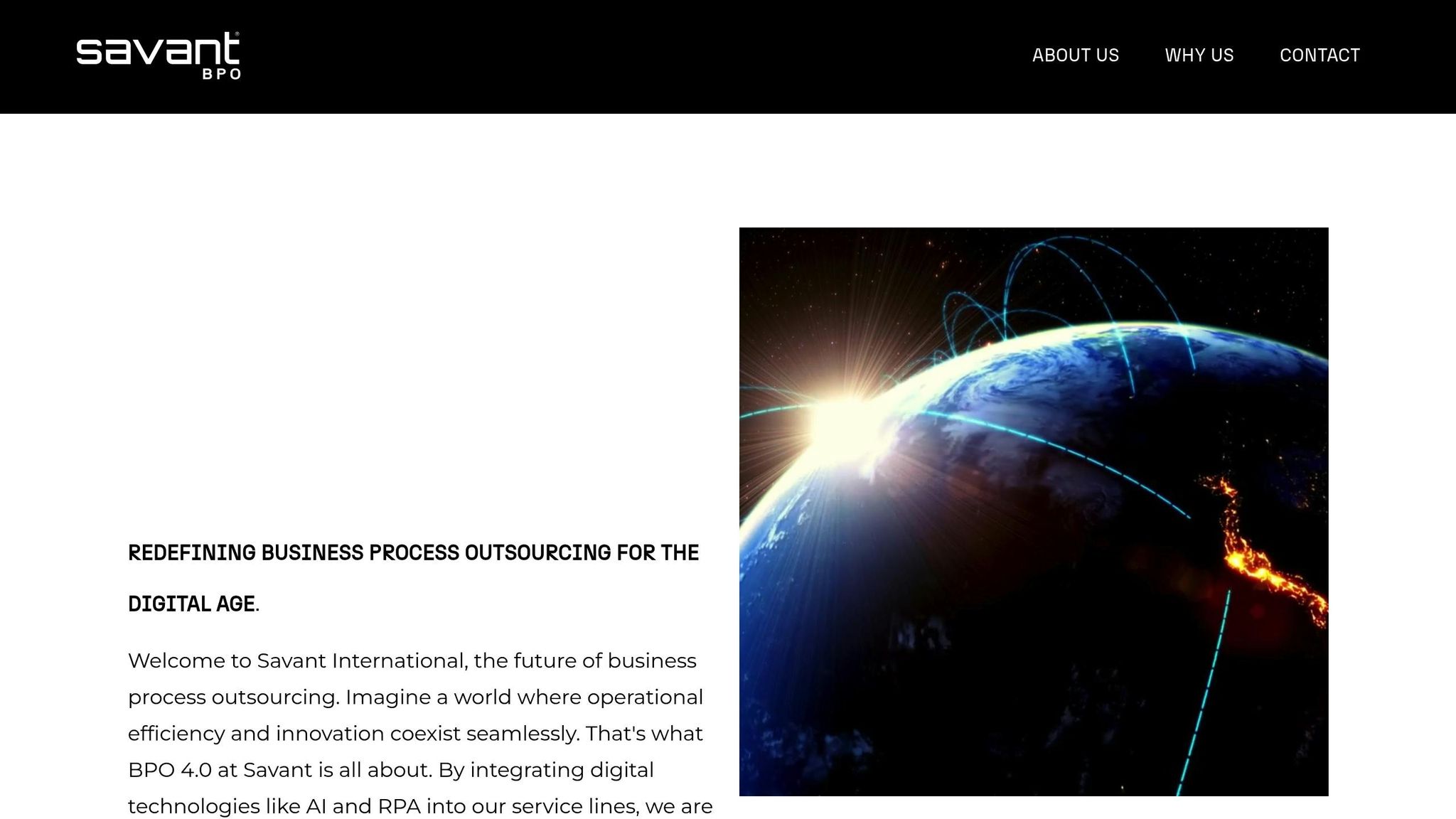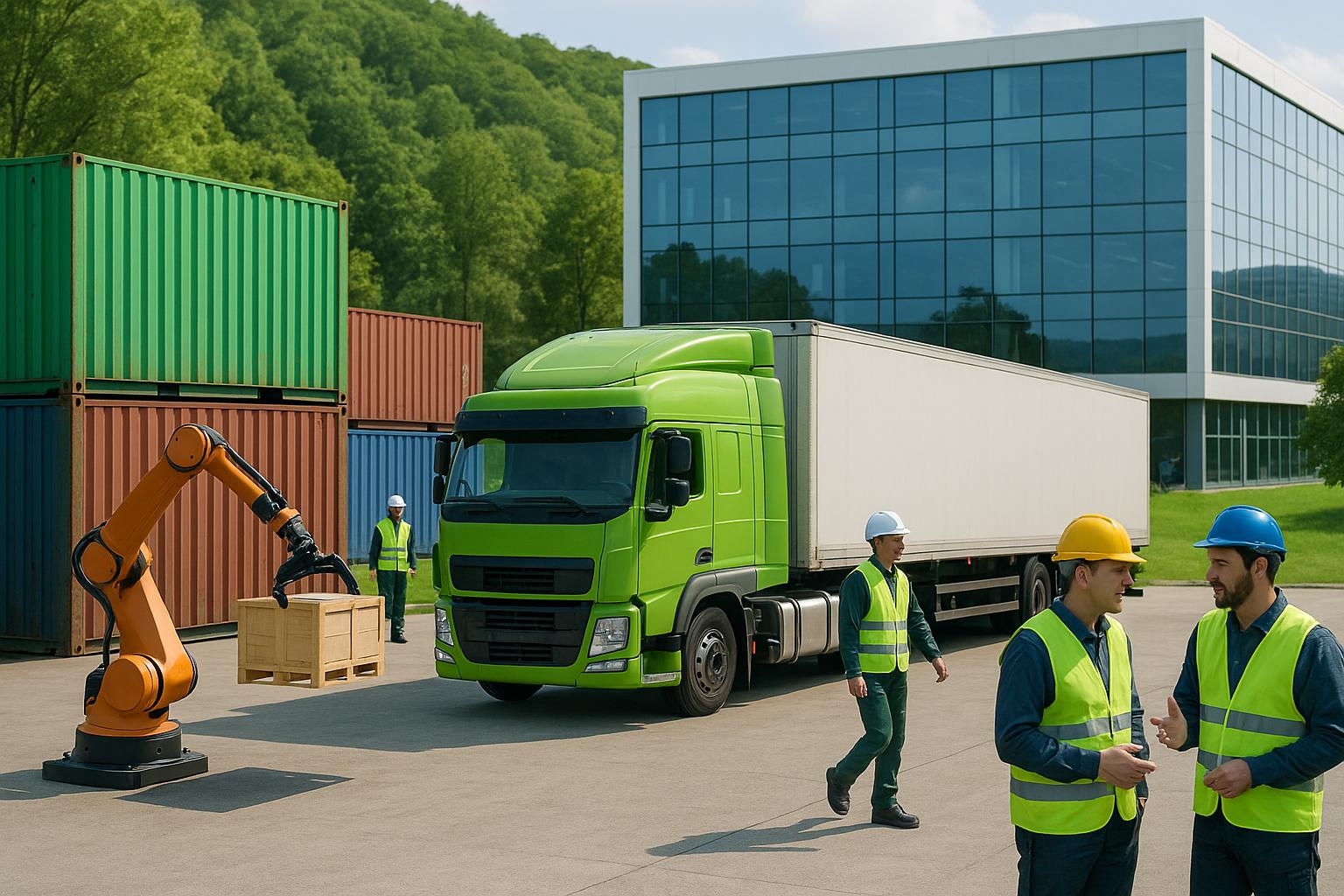In today’s complex and evolving global economy, the logistics sector stands at the crossroads of several transformative trends. Nearshore logistics, automation, and outsourcing strategies are becoming increasingly crucial for businesses to remain competitive in a challenging market. Juan, the founder of Savant, a company at the forefront of logistics outsourcing and automation, shares valuable insights into the state of the industry, the challenges businesses face, and innovative solutions that could redefine the future of logistics.
This article distills key lessons from Juan’s discussion, highlighting how businesses can leverage nearshore opportunities, integrate automation, and navigate a rapidly shifting global logistics landscape.
The Growing Importance of Nearshore Logistics
Nearshore outsourcing has gained significant traction in recent years, particularly in regions like Colombia. For companies in the U.S., nearshoring offers a strategic advantage by providing access to a skilled bilingual workforce, cost savings, and closer proximity compared to traditional outsourcing hubs like Asia.
Juan emphasizes that while Colombia has established itself as a hotspot for nearshore staffing and business process outsourcing (BPO), this trend has also increased labor costs, making it imperative for companies to focus on efficiency and added value. He notes:
"Colombia has a very talented workforce, especially in logistics. But with rising wages and increased demand, businesses need to move beyond basic staffing and explore more comprehensive solutions like process outsourcing and automation to stay competitive."
Nearshoring vs. Staffing: A Strategic Distinction
One critical insight shared by Juan is the distinction between staffing and true process outsourcing:
- Staffing involves hiring individuals to perform specific tasks within your company’s operations. While this provides flexibility and control, it often replicates the same challenges faced in domestic hiring.
- BPO (Business Process Outsourcing) involves outsourcing entire processes rather than individual roles. This allows companies to focus on results rather than micromanaging tasks, providing a more seamless and scalable solution.
Juan describes how Savant’s core model as a BPO provider helps businesses optimize processes like tracking, tracing, and carrier communications while minimizing inefficiencies.
"With BPO, you’re outsourcing the outcome, not just the task. It’s about delivering a result efficiently without the headaches that come with managing individual employees."
Automation and AI: The Double-Edged Sword
Automation and artificial intelligence (AI) were recurring themes in the discussion, with Juan providing a balanced perspective on their potential and limitations. While automation and AI hold immense promise for improving efficiency, their implementation remains uneven.
The Challenges of Automation
Many companies jumped into automation without fully understanding or modernizing their internal processes. According to Juan:
"A lot of companies never figured out automation completely before pivoting to AI. The result is a lack of proper infrastructure and fragmented solutions."
He highlights that businesses often resist the necessary upfront investment in modernizing their systems, preferring to stick with outdated processes that "aren’t broken" but could be vastly improved.
Where Automation Works in Logistics
While some roles, like outbound carrier sales, still require human expertise, many back-end operations – such as tracking, tracing, and data entry – are highly automatable. Savant, for instance, uses tools like robotic process automation (RPA) and API integrations to streamline these processes.
Juan explains:
"For tasks like tracking and tracing, automation can replace up to 50% of operational jobs on a brokerage floor. The technology is there; it’s just a matter of whether the company is ready to make the leap."
However, he also cautions against over-reliance on automation, especially in areas like carrier sales, where human intuition and relationship-building remain critical.
Geopolitics and Creating Your Own Freight
Another fascinating point Juan raised is the shifting dynamics of global trade and its implications for logistics providers. As geopolitical shifts make certain trade routes less viable – such as the reduced reliance on China – new opportunities are emerging in Latin America.
Juan encourages logistics professionals to think beyond traditional lanes and explore untapped regions like Colombia, Panama, and Argentina. He believes freight forwarders and brokers should proactively build relationships with suppliers in these regions to secure new sources of freight.
"Your backyard neighbors in Latin America are becoming your biggest commercial assets. Create your own freight by developing strong relationships with producers and finding innovative ways to move goods."
He also points to the strategic importance of infrastructure in these regions, such as Colombia’s Bogota airport, which is the largest freight hub in South America.
The Future of Savant: Bridging Technology and Talent

Under Juan’s leadership, Savant is evolving beyond traditional BPO and staffing services to focus more heavily on technology and automation. The company is developing proprietary SaaS tools that integrate automation and AI to streamline logistics operations further.
"We’re building something that solves real-world problems in logistics. While many companies are riding the AI hype wave, we’re focused on delivering measurable results for our clients. That’s why we’re testing our solutions rigorously before launching."
Juan also highlights the importance of balancing innovation with strategy, noting that Savant has moved away from custom app development for other companies to focus on building its own scalable solutions.
Key Takeaways
- Nearshore logistics offers significant advantages: Regions like Colombia provide access to skilled, bilingual talent, but rising labor costs necessitate a focus on efficiency and value.
- Understand the difference between staffing and BPO: While staffing offers flexibility, outsourcing entire processes through BPO can deliver better results with fewer headaches.
- Automation is a game-changer, but only when done right: Invest in modernizing your processes before implementing automation or AI solutions. Many back-end logistics tasks can already be automated for significant time and cost savings.
- Geopolitical shifts demand adaptation: As global trade pivots away from traditional hubs like China, logistics providers should build relationships with emerging markets like Latin America.
- Innovate with a purpose: Don’t adopt AI or automation just because it’s trendy; focus on solutions that address specific pain points and deliver measurable outcomes.
- Create your own freight: Building relationships with freight-generating industries and sourcing partners can help brokers secure new opportunities and expand their reach.
- The future is hybrid: Savant exemplifies how combining technology, talent, and process expertise can create a more resilient and scalable logistics operation.
Final Thoughts
For business professionals navigating today’s uncertain logistics landscape, adaptability and innovation are key. By embracing nearshore opportunities, leveraging automation wisely, and thinking globally, companies can thrive in a rapidly evolving market.
Juan’s insights serve as a powerful reminder that the logistics industry’s future belongs to those willing to invest in smarter processes, stronger relationships, and cutting-edge technology. As he aptly puts it:
"The tools are there. It’s just about whether companies are ready to make the leap."
Source: "TME Season 1 Ep 5: The One with the Golf Cart Drift" – Tell Me Everything, YouTube, Aug 12, 2025 – https://www.youtube.com/watch?v=fXioN3o00ug
Use: Embedded for reference. Brief quotes used for commentary/review.

